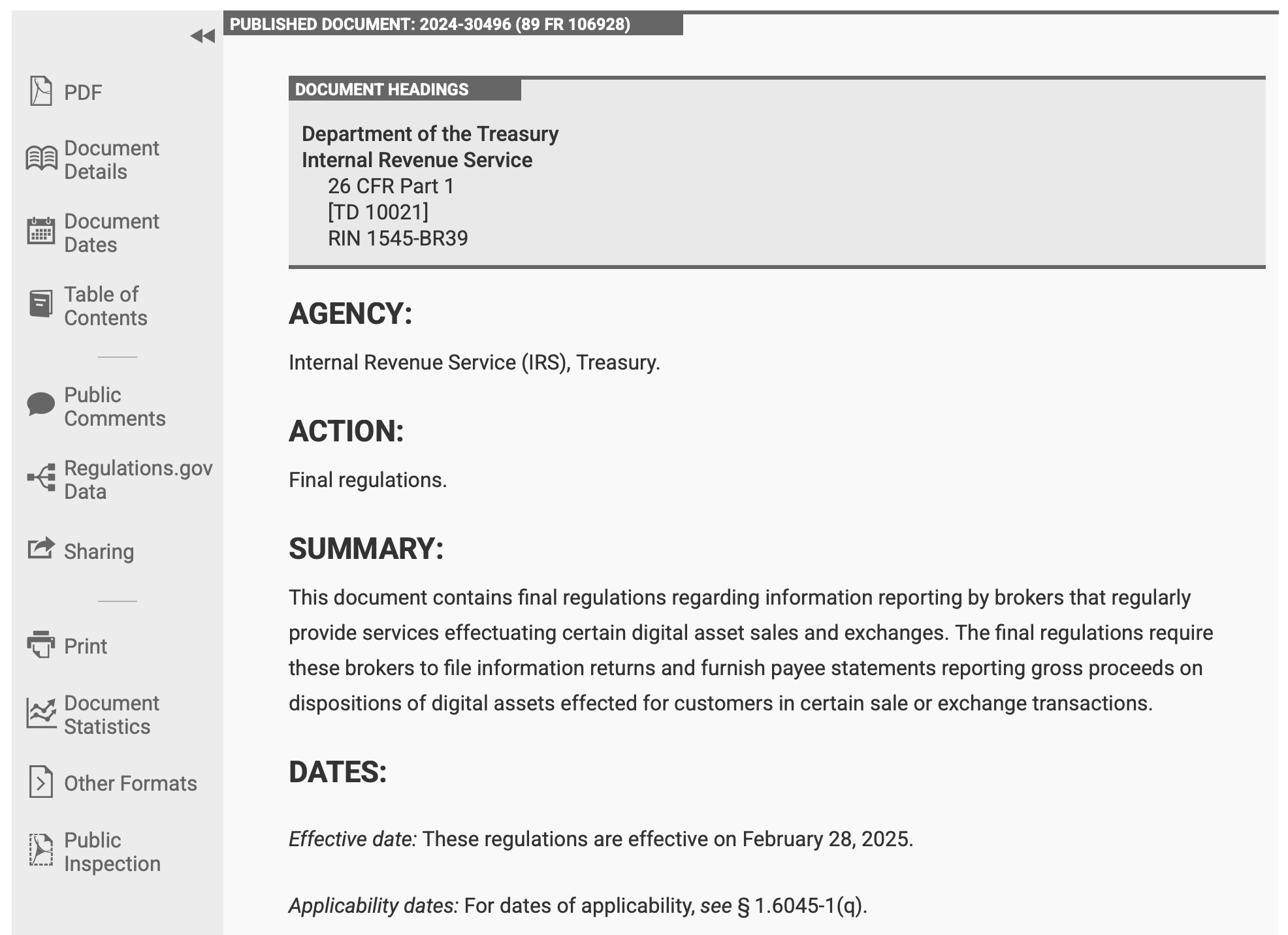The U.S. Senate has successfully overturned a controversial tax regulation that was anticipated to negatively impact the cryptocurrency market before the Trump administration. In a late Wednesday vote, 70 senators endorsed the repeal, while 28 opposed it. The IRS rule that has now been rescinded imposed requirements on decentralized finance (DeFi) platforms to act like traditional securities brokers. The decision has been forwarded to the White House for President Donald Trump’s signature, which is expected to be granted.
Why Did the Regulation Spark Controversy?
Introduced during the last days of the Biden administration in December 2024, this IRS regulation mandated certain organizations operating in the DeFi space to collect and report transaction data from users. Additionally, it required platforms to issue traditional income tax forms known as “Form 1099” to their users. The U.S. Treasury Department clarified that the rule targeted organizations operating interfaces that directly access decentralized protocols.

However, this regulation faced intense criticism from both major players in the cryptocurrency market and politicians. Concerns were raised that the rule could hinder innovation and lead U.S.-based ventures to relocate overseas. Shortly after the regulation took effect, the DeFi Education Foundation and various organizations filed a lawsuit against the IRS, claiming the implementation would have serious repercussions on the market.
Reactions from Politicians and the Cryptocurrency Community
Republican Senator Ted Cruz and House Representative Mike Carey jointly introduced a proposal to facilitate the rule’s repeal. During the voting process to overturn the regulation, many Republicans were joined by several Democratic politicians in support. Figures like Senate Minority Leader Chuck Schumer expressed approval of the decision.
However, some Democrats criticized the Republicans for allegedly aiming to undermine the IRS. Massachusetts Representative Richard Neal argued that Republicans intended to leave the IRS with a persistently inadequate budget.


 Türkçe
Türkçe Español
Español








